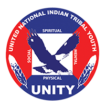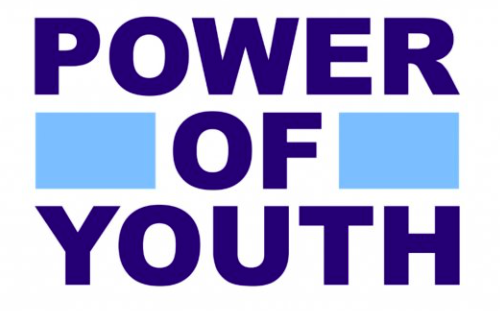Power of Youth Challenge: America’s Promise Awards 10 Winners with $1,000 to Expand their Service Projects and Bring Positive Impacts to their Communities
Last year, America’s Promise Alliance launched the Power of Youth Challenge to encourage and inspire youth-led service projects around the country. In partnership with Charles Stewart Mott Foundation and Peace First, we posed a challenge to young people to identify an issue or an injustice in their community and put forth an idea that engages others to make an impact. To deepen their knowledge and insights about a problem their community faces and put forth a solution, we gave them $250 to help make it happen.
The response was immediate. Five hundred teams of young people from all across the country raised their hands to accept the challenge. They came from 42 states, urban and rural, and suburban areas, small towns and big cities. In the six months they had to complete the process from insight to planning to action to reflections, 25,000 young people engaged in 86 projects to make their communities a better place to live and thrive. Additionally, 235,000 people got involved in the challenge by social media, spreading the word, promoting the projects and the causes.
Out of these 86 applicants, ten were selected to accelerate their progress with an additional $1,000 grant. These were chosen by a team of youth leaders at Peace First who looked for their peers who had deepened their understanding of the root causes of the problem, demonstrated perseverance, compassion, and understanding for others’ perspectives and were making a significant impact for and with the people who were affected by the community issue they chose to tackle. These finalists will receive an $1,000 acceleration grant to continue their work on their service project.
From assisting young people in expanding their worldview by creating a digital exchange to providing information about healthy ways of managing stress and pain for high school students, the projects touch on a number of issues that affect Americans from coast to coast.
This challenge was made possible by a generous grant of the Charles Stewart Mott Foundation, which supports projects around the world that promote a just, equitable and sustainable society and believes that young people themselves are the key to solving some of our communities’ most pressing problems.
Check out the outstanding ten finalists and their projects below. Stay tuned for Year Two of the Challenge!
2019 Power of Youth Finalists
Project: The Blue Lollipop Project, Riley D.

The Blue Lollipop Project aimed to share blue smiles with children in various hospitals and to bring attention to the psychological impact of childhood cancer. The project also sought to raise funds and awareness of pediatric cancer research with the goal of getting more youth involved. Youth project leader Riley Damiano lead this initiative as a volunteer with Memorial Sloan Kettering Child Life department. Over 200,000 individuals were impacted by this project with 16,000 pediatric cancer warriors receiving blue lollipops and the addition of 16,000 new pediatric cancer research donors due to the impact of this project. Over three million people alone have watched the video about The Blue Lollipop Project. Today, students across the country hold their own Blue Lollipop fundraisers.

Project: DFW Youth Success, Isaac E. and Hannah S.
Isaac and Hannah sought to find a solution to the lack of guidance and mentoring in schools for low-income seniors in their college search process within the Dallas-Fort Worth Independent School District. The project aimed to create a community that serves young adults for the duration of high school to aid them with professional development, academic and civic support. It also encompassed a full-year curriculum which included a summer session that reached 40 individuals within various area high schools. Led by a youth leadership team, the project has the goals of spreading to surrounding areas of Texas.
Project: Leaders in Lowell, Bridget P.
Bridget P. noticed the lack of access that ordinary people have to top tier inspirational leaders that offer a wealth of experience and knowledge in an important field. On a grassroots level, youth leaders sought to provide direct access to thought leaders through their Leaders in Lowell program, which hosted free leadership events that educate, inspire, and connect. With the assistance of the Greater Lowell Community Foundation on a local level and America’s Promise Alliance on a national level, the project’s first speaker was Rena Finder, a Holocaust survivor. From the event, an advisory board was created comprised of various business leaders, nonprofit leaders, educators, and others to meet and discuss issues, ideas, events, and funding. This project partnered with local schools and community organizations and impacted approximately 120 individuals.
Project: Calm Kits, Kaitlyn T.
More than ever before, today’s teens are experiencing high levels of stress, physical, and emotional pain but lack the tools and knowledge to manage it. In response, Calm Kits were created by youth leader Kaitlyn T., with the goal of providing information about healthy non-pharmacologic ways of managing stress and pain for high school students.
Various students, teachers, and staff were selected as “Calm Kit Champions” (CKCs) at 10 area high schools with the intention to train students to make Calm Kits. All CKCs were provided educational materials that provided resources for stress and pain management to share with others. To manage the process, monthly zoom meetings were held to evaluate the progress of the Calm Kits and to discuss ways of expanding the program. In total, nine CKCs were selected.
Project: Love Letters for Literacy, Jordan G.

Love Letters for Literacy promotes childhood literacy by enabling children to have fun while learning the letters of the alphabet. By recruiting volunteers across the country, this project helped to engage families in the process of teaching their children the letters of the alphabet while also teaching children how to read. Love Letters for Literacy focused on global literacy, helping children in various places around the world including a small rural village in Fiji, an orphanage in Bosnia, a refugee center in Toronto, and a nursery school for children exposed to abuse in Philadelphia etc. Over 1,400 youth were impacted by this project, each receiving a packet with games to play, a handwritten letter from a volunteer, and 26 alphabet handmade cards.
Project: Project Exchange, Ashley L.
Ashley L., creator of the Project Exchange witnessed a lack of cultural understanding within the United States and wanted to provide students with opportunities to learn more about the cultures of the world. Thus, the idea of the Digital Exchange Program was born. The goal of this project was aimed at assisting young people in expanding their worldview, eradicating stereotypes and promoting tolerance. In schools, it’s not always common for teachers to devote time to teaching classes about diverse cultures sometimes resulting in overt displays of cultural imperialism. The Project Exchange sought to increase multicultural education and cross-cultural leadership developmental opportunities. This cross-cultural exchange created quality global education opportunities for youth service projects completed by Project Exchange Chapters. To date, over 64 youth have been impacted.

Project: Pathways 2 Power (P2P) Focus Group, Lauryn R.
The Pathways 2 Power (P2P) project co-created by Lauryn R. seeks to address the generational cycle of violence in Washington, D.C. P2P is a student activist group that was created in the midst of grief of two of Lauryn’s classmates. P2P looked at the key factors of violence in the city including poverty, lack of self-esteem, toxic communities, gentrification, racism and lack of education. To discuss violence within their communities, P2P held the “Pass the Vision” focus group which consisted of a round table discussion with community-based activism groups. 30 students were joined by supporting staff, and current Pathways members to discuss how to change the toxic mentalities that deem violence normal. The project aims to hold monthly focus group meetings.
Project: Project O.C.E.A.N., Dyson C.
After researching the environmental threat pollution poses to the world at-large, Power of Youth finalist Dyson Chee decided to address this social injustice. In an effort to reduce the use of single-use plastics contributing to plastic pollution in Hawaii, Dyson created a project to lessen society’s dependence on plastics. In total, 93 people took up Dyson’s challenge to not use single-use plastic straws and instead use stainless steel straws that the project distributed. By regularly visiting classrooms and community events, Project O.C.E.A.N. addressed a lack of education on why plastic pollution is a problem. Through the continuation of this project, Dyson aims to present to over 5,000 people, and give out over 2,500 stainless steel straws.
Project: Serving Impoverished Children in Indiana, Luke G.
To address the issue of students living in poverty, Luke G. created a program to serve impoverished children in the state of Indiana. The project looked to address childhood hunger and the lack of necessities for some students within the Hamilton County School Districts. The goal was to provide schools and organizations with bags containing food items which were distributed to children who would benefit the most. Through various food drives and the hosting of community-oriented project packing events, around 1,500 bags were created for underserved youth in the local community.
Project: Where Our Kids Empower (WOKE), Darlene F.
The Where Our Kids Empower (WOKE) project sought to expand youth activism by increasing youth engagement in the community for the purpose of creating positive social change. To drive this movement, WOKE focused on issue-oriented activism after project creator Darlene Folas-Ella became concerned about rising political apathy. Darlene witnessed firsthand the lack of teens participating in their local, state and national political systems. After seeing how political apathy affected disenfranchised groups in West Orange, N.J., WOKE addressed the lack of political allies and spaces for minority youth by using seminar discussions to educate and create safe spaces for youth. The seminars helped to invite youth to develop and discover their own political identity and encourage teams to participate in the political process by registering to vote, contacting local officials. Youth participants also created banners and posters to spread political awareness in their respective schools.


